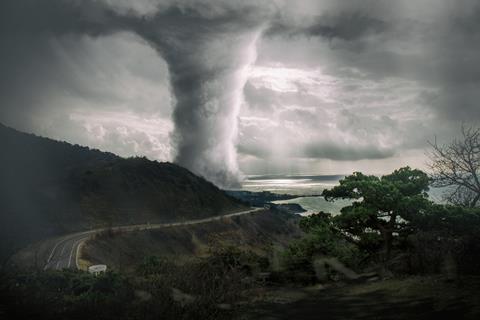New research from the Cambridge Centre for Risk Studies demonstrates why businesses must get to grips with climate change.
Climate change could add around 20 per cent to the global cost of extreme weather events by 2040, according to early findings from Cambridge researchers.
The findings come from the Cambridge Climate Change Business Risk Index, a new component of the Cambridge Global Risk Index, developed by the Centre for Risk Studies, with Cambridge Zero and British Antarctic Survey.

The research also found that the total losses from climate-related events could rise by $100 billion per year in the next two decades.
The index incorporates climate model output to analyse and quantify the increasing risks of extreme weather events, and their potential to disrupt business operations and supply chains globally.
It shows that, by 2040, businesses in Chicago can expect a 50 per cent chance of having an additional 20 days a year where average temperatures will exceed 25ºC. As well as an additional week of days above 30ºC.
It is expected that climate change will add around 20 per cent to the global cost of extreme weather events (storms, floods, heatwaves, droughts).
Indeed, it is estimated that extreme weather events will increase from reported losses at present running at an average of around $195 billion a year in direct costs, to $234 billion by 2040, an increase of $39 billion a year at today’s values.
If the indirect costs from supply chain disruption and other knock-on economic consequences are factored in, it is possible that climate change could add over $100 billion of loss each year to the global economy.
Climate change is a growing concern for businesses. Many corporations are trying to understand how it is likely to affect them, the actions that they may need to undertake for sustainability as well as commercial and competitive reasons, and the regulatory requirements or other liabilities they may face.
The Centre for Risk Studies is urging businesses to to evaluate their own exposures to climate risk so that they can improve their resilience and sustainability.
Dr Andrew Coburn, Chief Scientist at the Centre for Risk Studies, comments: “Companies are struggling to reconcile the long range forecasts of the consequences of a warmer planet in several decades’ time, with weather changes that are already impacting their businesses in various ways, and how their business will be affected by the transitions that society is making today towards a low-carbon economy.”
The University of Cambridge has been at the forefront of climate science and has led the way in understanding the processes of climate change. It has an ambitious, new cross-university initiative in Cambridge Zero which aims to bring together its research, policy, and private sector engagement activities on climate change and zero-carbon solutions.
Dr Emily Shuckburgh OBE, Director of Cambridge Zero, explains: “Cambridge Zero provides an opportunity for the University’s research expertise to contribute information and tools for use by businesses, as well as policymakers and other stakeholders.”




















No comments yet